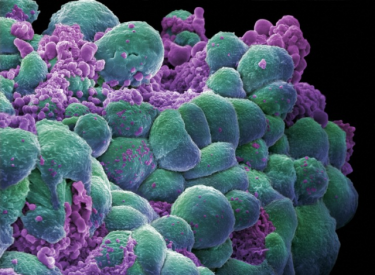- Home
- Department
- Research
- Teaching
- Post Graduate Studies
- Services and Equipment
- Knowledge Transfer
Molecular oncology
Research Area:

Tumours develop from normal human cells through a complex mutli-stage process. This line of research aims to characterise the molecular changes that underpin progression and pathogenesis of cancer.Research groups employ diverse techniques ranging from genomics, to proteomics, to computational biology, to in vitro and in vivo functional models to identify and characterize genes that are involved in formation and progression of cancer, and to study their biological and clinical phenotypes. Proteins encoded by these genes may serve as novel markers for prognosis, and/or as targets for development of novel drugs, or repositioning of currently available drugs.
The ultimate goal is to translate these findings into improved treatment options for cancer patients.
Research Groups
Last update: 12-03-2025 - 23:30



